Pest animals cause a range of impacts to primary production, the environment and human health across the Southern Downs Region. Pest animals such as wild dogs, feral pigs, foxes and feral cats attack and kill livestock, damage crops and infrastructure and can spread disease, while rabbits and feral deer also damage crops and infrastructure, compete with livestock for pasture and alter the composition of our biodiversity. Ongoing action is required from all landholders to reduce these impacts.
Landholder Responsibilities
The Biosecurity Act 2014 requires everyone to take all reasonable and practical measures to minimise the biosecurity risks associated with invasive plants and animals under their control. This is called a general biosecurity obligation (GBO). All landholders are required to control declared pest animals on their land, including private landholders, Council and State agencies such as Main Roads and Queensland Rail. For more detailed information on landholder responsibilities please refer to the responsibilities section of the Southern Downs Regional Council Invasive Pests Strategic Plan.
Declared Pest Animals
The Queensland Biosecurity Act 2014 protects Queensland’s economy, biodiversity and people’s lifestyles from the threats posed by invasive pests and diseases. Under the Act, certain species of animals are listed as 'prohibited ' or ‘restricted’ biosecurity matters.
Prohibited invasive animals are not present in Queensland and:
- would seriously threaten Queensland's agriculture, natural environment, livestock, human health and people's livelihoods
- must be reported to Biosecurity Queensland within 24 hours of the sighting by calling 13 25 23.
Restricted invasive animals on the other hand are established in Queensland and seriously threaten Queensland's primary industries, natural environment, livestock, human health and people's livelihoods.
Further information on prohibited and restricted invasive animals can be found on the Business Queensland website.
The most common declared pest animals in our region – wild dogs, feral pigs, foxes, rabbits, feral cats and feral deer – are declared restricted matters under the Biosecurity Act. The Act charges Council with ensuring landholders fulfill their general biosecurity obligation to manage the biosecurity risk posed by these and other pest animals.
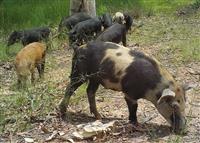
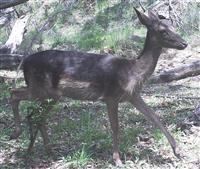
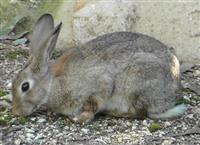
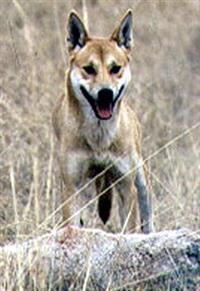
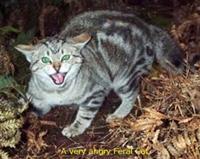
What assistance is available for pest animals on my property?
Council pest management officers can provide locally relevant information to landholders on the most economical control methods for a range of pest animals.
Council runs coordinated wild dog, feral pig and fox baiting programs yearly. Council also offers landholders access to a free 1080 baiting service outside of coordinated baiting times. For more information regarding baiting programs please visit the Council's Baiting webpage.
Council pays bounties for wild dogs trapped or shot within the SDRC area to supplement the 1080 baiting programs. $100 is paid for adult dogs and $50 for pups. For more information on wild dog bounties please visit Council's Wild Dog Bounty webpage.
Council has fox and feral cat traps available for hire at very reasonable rates. Please contact Council Customer Service to hire traps.
A tighter control framework for managing the region’s domestic and feral cats was recently adopted by Southern Downs Regional Council.
Following a period of public consultation, the Cat Management Strategy 2022-2026 identifies a range of actions to guide cat management to improve the health and well-being of domestic cats, reduce the environmental impacts of stray and feral cats and reduce management costs to Council.
I've seen declared pest animals. What do I do?
If you see a wild dog, feral pig, feral deer or rabbit or feral cat please contact Council to discuss control options.
Where can I find information on identifying and controlling pest animals?
Experienced pest management officers are based in Council’s Warwick and Stanthorpe offices and are available to assist in the identification of pest animals. They can also provide advice on the most effective and economical control methods.
An extensive array of invasive animal fact sheets produced by Biosecurity Queensland can be accessed via the Queensland Department of Agriculture and Fisheries website.